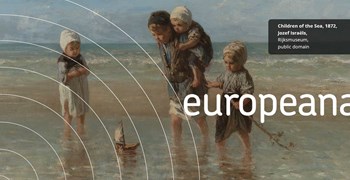The Music of Machines
Every month, Europeana Music invites a guest curator to look at a particular area of music. This month, our guest is Greg Markus from Netherlands Institute for Sound and Vision.

Rotterdam Harbour, 1940 (Public Domain, Rijksmuseum)
The everyday sounds are the ones that soundtrack our lives and have simply since humans developed ears and the capacity to listen. Europeana offers thousands of visitors the unique opportunity to explore Europe’s sound heritage through music dating back a century. However, for this month, we’re curating sounds that once filled the Netherlands’ sonic environment and showcasing how artists are transforming them into new musical masterpieces as part of the Netherlands Institute for Sound and Vision’s RE:VIVE initiative.
For artists that sample sounds mold them into new creations some of the most prized audio content are environmental field recordings. They not only have serendipitous moments that exist only in that place at that time, they also offer vast amounts of sonic range from 20 to 20,000khz. This sonic range presents countless opportunities to warp, stretch, splice, cut and explore. Sounds like the those of machine rooms, road traffic, and even a washing machine might sound like the least musical thing to a normal person but for a musician it is a world of wonders like a sculpture getting a slate of marble and chiseling away to create a whole new world.
Mechanical field recordings also offer the opportunity to bring sounds otherwise impossible to recreate in a recording studio into music. For instance, the sounds from the Port of Rotterdam, Europe’s busiest port where the groans of of heavy machinery and wails from ship horns dominant the day-to-day sonic landscape. These sounds define the city and their power is a great way to capture an emotion a human and their instrument could ever amass.
Lastly, what these environmental field recordings and sounds offer is the capturing of specific historic moments and legacies that are now lost or forgotten. For instance, these recordings from Amsterdam’s Huis van Bewaring, a massive prison that once stood next to Leidseplein are the remaining echoes of human incarceration in a place that is now a tourist hot spot. Using sounds from the Huis van Bewaring not only provide cataclysmic reverb but equally provide an emotional weight that carries over to the artist’s’ approach to music.












